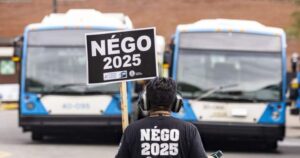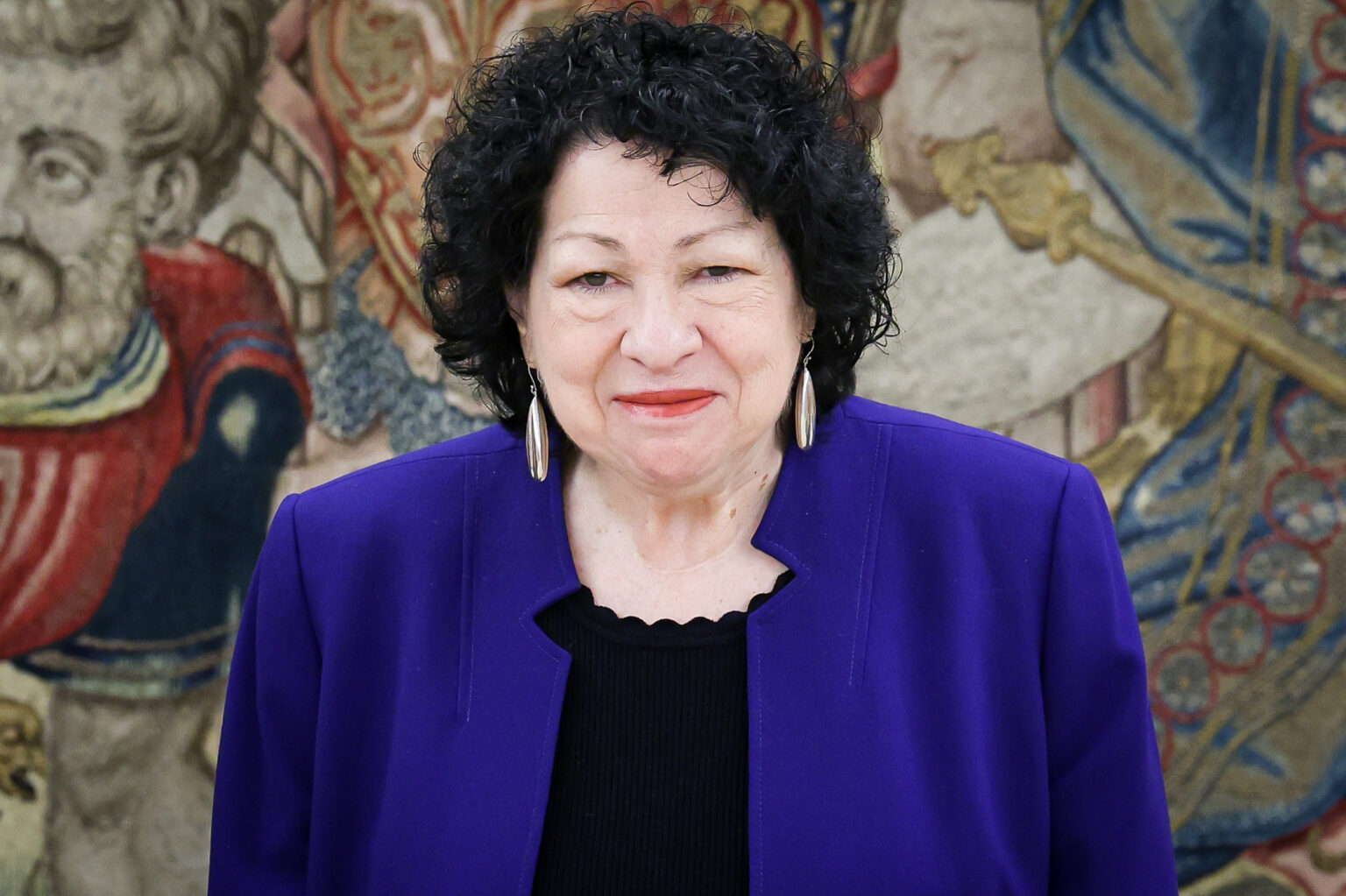U.S. Supreme Court Justice Sonia Sotomayor fired a “startling new warning shot” from liberal justices in a decision involving a visa dispute, legal analyst Joan Biskupic said.
On Friday, the Supreme Court held, in a 6-3 decision in a visa case involving Sandra Muñoz, an American citizen, who married Luis Asencio-Cordero, a citizen of El Salvador, that a U.S. citizen does not have a fundamental liberty interest in their noncitizen spouse being admitted to the country.
The decision came after Muñoz filed a petition to have her husband classified as an immediate relative for immigration purposes. The petition was granted, but Asencio-Cordero’s visa application was denied by a consular officer, who cited a provision that renders a noncitizen inadmissible if they are believed to seek entry to engage in unlawful activities. Asencio-Cordero was suspected of being a member of a criminal gang, which he denied.
However, in a dissenting opinion on Friday, Sotomayor, joined by justices Elena Kagan and Ketanji Brown Jackson argued that the exclusion of a noncitizen spouse burdens the citizen spouse’s right to marriage.
In a CNN article published on Tuesday titled Why Justice Sotomayor’s rare reference to Dobbs may be a warning from liberals, Biskupic, a senior Supreme Court analyst for the news organization, discussed Sotomayor’s dissenting opinion, saying that liberals “fired a startling new warning shot” when Sotomayor cited the 5-4 decision in Dobbs v. Jackson Women’s Health Organization “as she asserted the majority was threatening marriage rights, particularly same-sex marriage as established in the 2015 case of Obergefell v. Hodges.”
Newsweek has reached out to the Supreme Court via online email form for comment.
“Liberals on Friday fired a startling new warning shot in what was otherwise a low-profile dispute over a Salvadoran husband’s immigrant visa. The Dobbs majority had asserted that its elimination of abortion rights “does not undermine … in any way” other entrenched rights, such as those involving contraception or marriage, Sotomayor wrote. Despite that assurance, “the Court fails at the first pass,” Biskupic wrote.
Since the Supreme Court’s conservative majority overturned Roe v. Wade in 2022, stripping away constitutional protections for abortion, the United States has had an uneven abortion landscape, with most Republican-controlled states having new abortion restrictions, including some that have banned abortion in almost all circumstances, while most Democratic-led states have laws or executive orders to protect access to abortion.
According to Biskupic, Sotomayor’s reference to Dobbs in Friday’s visa case may be a warning of “liberal frustration and despair” and be reflected in future cases, adding that it could also play a role in cases specifically involving the intersecting of same-sex marriage and reproductive rights.
“There may have been a larger message of liberal frustration and despair,” she added. “That could reflect what the liberal justices know is coming in cases soon to be announced. It could also reflect foreboding for the next set of issues that relate to same-sex marriage, including those intersecting with Dobbs, such as in vitro fertilization and other reproductive interests.”
However, Justice Amy Coney Barrett countered Sotomayor’s dissenting opinion as an overreaction to an immigration dispute. She argued that a citizen does not have a fundamental liberty interest in admitting their noncitizen spouse to the country.
“The dissent never addresses the actual issue in this case, which is whether the Judiciary has any authority to review visa determinations made by the State Department,” she wrote. “Instead, the dissent chooses the rhetorically easier path of charging the Court with endangering the fundamental right to marriage. To be clear: Today’s decision does not remotely call into question any precedent of this Court, including those protecting marriage as a fundamental right.”
Barrett was joined in majority opinion by conservative justices John Roberts, Clarence Thomas, Samuel Alito and Brett Kavanaugh.
This comes as the nation’s highest court aims to wrap up its 2023-2024 term. It has about two dozen opinions to announce before the end of the month, including major rulings related to former President Donald Trump’s presidential immunity claims, Second Amendment rights argued in United States v. Rahimi and the Chevron doctrine that gives administrative agencies authority to implement its own rules and regulations.
Additionally, regarding abortion, the court will also decide on a federal law dispute involving Idaho emergency room centers. The case tests whether, in states that ban abortion, the law would cover women requiring the procedure because of serious complications.
Read the full article here














